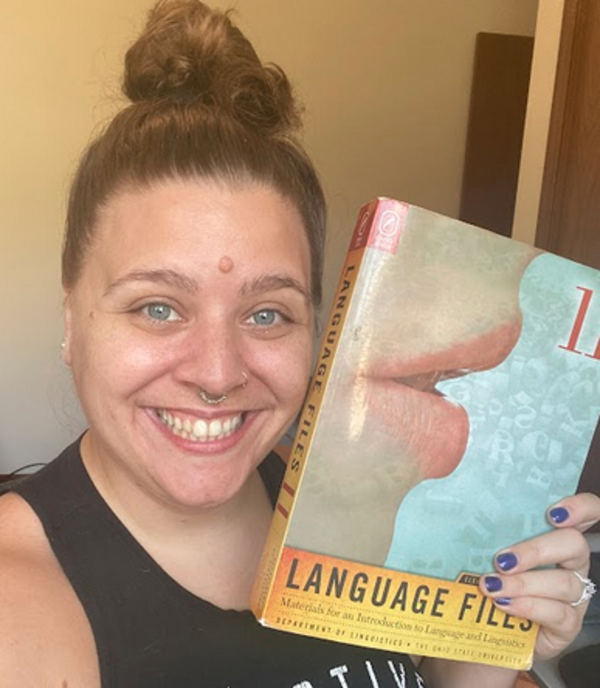An Iowa College in the Liberal Arts Tradition
Linguistics
Hannah (Scholbrock) Makeever ‘15
Studied at Luther: Vocal music major, linguistics minor (mostly)
1. Why was it important to you to include a linguistics-oriented IIM or a Linguistics minor as part of your studies while you were at Luther?
As a vocal music major, foreign languages were part of my everyday studies. I took a linguistics course originally to satisfy my quantitative credit, but I fell in love with the subject. Knowing how to sing in a foreign language was different than appreciating the language and how a composer chose to combine the composition with the language. That's where it started, but then my love of language kicked in and linguistics became a subject I couldn't imagine not studying. Honestly, if it had been an option for a major, I may have considered changing majors to study linguistics. Language is a key to understanding cultures and societies outside of one's own, and it felt like one of the most appropriate things to study at a liberal arts college.
2. What sort of occupation or professional activity are you engaged in now?
I work in finance for a healthcare organization as well as teaching voice lessons at an art center.
3. In what ways has the knowledge you gained through studying linguistics contributed to how you engage with your current work and/or the world in general?
I work in multiple healthcare computer programs for healthcare billing. Many of them allow rules to be written. Between the rules and the constant formulas in excel, my knowledge from the syntax course is incredibly helpful. It's amazing to break down the formulas and rules to their syntax, making them more useful and easier to manipulate for my intended use.
In my voice lessons, I teach students to sing in other languages, and when I do so, I teach them the IPA. It allows us to discuss how to articulate properly with the languages' articulation and talk through where in the mouth it occurs as opposed to hoping they hear it correctly from me.
In the world, I find strong importance in honoring how people speak. That involves not laughing when people mispronounce something. Sometimes it's fascinating when it's a Spoonerism, but sometimes it's because they are ESL. When I hear accents, I work hard to understand their articulation, especially when people are pronouncing their names. If I can pronounce phrases or names the way they are supposed to be (or as close as I am able as a foreign speaker), I will. It feels like the smallest amount of kindness, and an act of kindness the world greatly needs from any willing person at this time.

